
Monika Korzun
McCain Foundation Postdoctoral Fellow at Faculty of Agriculture, Dalhousie University
Monika has been working in the Canadian food system space in various capacities since 2010 including academia, non-profit sector and private sector. She is currently pursuing a postdoctoral fellowship at Dalhousie University exploring the social aspects of sustainable agriculture in the agri-food industry. She also completed a Mitacs Accelerate postdoctoral fellowship at St. Paul University where she worked closely with the Food Communities Network – Réseau Communautés Nourricières (FCN-RCN), exploring food security and the role of civil society organizations in food systems governance. Monika completed a PhD in Rural studies at the University of Guelph, exploring the experiences of farmers participating in food value chains in Southern Ontario. Monika's work has been published in several journals including Journal of Agriculture, Food Systems and Community Development, Sustainable Production and Consumption and the African Journal of Science, Technology, Innovation and Development. She has also published several book chapters and reports.
Less ![]()

Monika Kuffer
Associated professor, faculty of geo-information science and earth observation, University of Twente
Monika Kuffer is working as Associated Professor at the Faculty of Geo-Information Science and Earth Observation (ITC, University of Twente). Her main research interests are urban remote sensing, SDG monitoring, mapping deprived areas (e.g., slums), and analyzing urban form and dynamics with remote sensing and spatial statistics/metrics. She is co-chairing an international network on deprivation area mapping IDEAMAPS (https://ideamapsnetwork.org), and is presently working on two research projects related to deprivation area mapping SLUMAP (http://slumap.ulb.be) and ACCOUNT (https://slummap.net). She received her PhD from the University of Twente (NL) and one MSc in Human Geographer (TU Munich) and a second MSc in Geographic Information Science (University of London).
Less ![]()
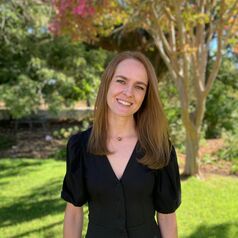
Monika Moir
Postdoctoral Researcher of Pathogen Genomics, Stellenbosch University
Currently, I am working as a Postdoctoral Researcher at Centre for Epidemic Response and Innovation (CERI) at Stellenbosch University, South Africa. CERI is specialised pathogen genomics research group and laboratory facility of the Africa CDC and WHO AFRO that leads the Network for Genomic Surveillance in South Africa of COVID-19. I focus on molecular epidemiological investigations of SARS-CoV-2 and arboviruses using next generation sequencing data in South Africa and across Africa. In 2021, I conducted evolutionary biology research centred around pollination biology as a Postdoctoral Fellow in the Biological Interactions Lab of Stellenbosch University. I acquired a PhD in Zoology from Stellenbosch University in 2020, in the fields of bat ecology and conservation with specialisation in bioacoustics, morphology, population genetics, phylogeography, and landscape ecology.
Less ![]()

Monika Schmitter
Professor and Chair of History of Art and Architecture, UMass Amherst
I am a full professor of Italian Renaissance and Baroque art. I am a specialist in Renaissance art, especially from Venice, but I also teach courses in Italian Baroque art. I have published widely on Italian Renaissance art with a focus on how art was collected and displayed, especially in domestic settings. This is the emphasis of my recent book "The Art Collector in Italy Modern Italy: Andrea Odoni and his Venetian Palace" (Cambridge University Press, 2021).
Less ![]()

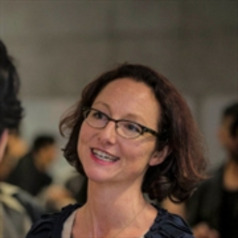
Monique Jonas
Associate Professor, School of Population Health, University of Auckland, Waipapa Taumata Rau
Dr Monique Jonas is an Associate Professor within the School of Population Health at the University of Auckland, where she has been based since 2010. Monique studied English and Politics as an undergraduate and was drawn to political philosophy and ethical theory. That sparked an interest in moral status and decisions at the beginning of life. Monique is an ethical theorist whose research focuses on decision-making for children, the status of health advice, the ethics of advice-giving, distributive justice in health, equity and the relationship between the family and the state. She enjoys working in a multi-disciplinary environment in the School of Population Health, and welcomes supervision inquiries in ethical theory and applied ethics.
Monique completed her PhD at King’s College London in 2005, where she explored ethical aspects of decision-making for neonates, under the supervision of Professor Jonathan Glover. She began her academic career working as a research assistant for Professor Søren Holm at Manchester University, and then as a lecturer at the Centre for Professional Ethics at Keele University.
Monique has been a University of Auckland Proctor since 2021, and Chair of the Health Research Council Ethics Committee since 2020. She has also been a member of the School of Population Health Board of Research since 2020.
Monique has held research grants from the Health Research Council (2020) and the Royal Society of New Zealand (Marsden, 2019) For more details, see the Research page.
Since 2020, Monique has been Australasian Co- Chair of the Cambridge Bioethics Education Consortium Working Group. She has also been on the Editorial Board of Public Health Ethics since 2015. Monique has also published in many journals, including Pediatrics, Medical Law Review, Bioethics, and Child and Family Law Quarterly.
Her latest book, expected publication date of 2024, is The Ethics of Advising [Oxford University Press]. She also presents at international conferences and conventions including the annual Australasian Association of Bioethics and Health Law Conference.
Less ![]()
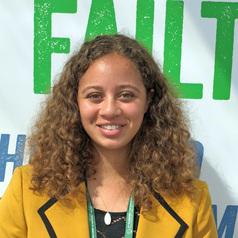
Monique McClain
Assistant Professor of Mechanical Engineering, Purdue University
Dr. McClain's research interests include dissimilar material 3D printing, additive manufacturing of energetic materials, additive manufacturing of materials for high temperature applications and quality control in additive manufacturing.
Less ![]()

Monique Rooney
Senior lecturer in literature, film and new media, Australian National University
I research and teach US literature, film, television and new media in the English Program, Australian National University. Living Screens: Melodrama and Plasticity in Contemporary Film and Television (2015) is my book about contemporary melodrama. I am currently completing a book on contemporary “brow” aesthetics while researching the papers of Ruth Park in preparation for writing a literary biography.
Less ![]()

Monique Sedgwick
Associate Professor of Nursing, University of Lethbridge
Degrees
BSc, MN, PhD
Expertise
Preceptorship, health practices in the rural setting, nursing education
Research Areas
Clinical judgment in practice settings, ethics in education, nursing practice in rural hospital settings.
Previous Research Areas
Becoming a parent after infertility
Less ![]()

Monique Potvin Kent
Professor, School of Epidemiology and Public Health, L’Université d’Ottawa/University of Ottawa
Dr. Monique Potvin Kent is a Professor in the School of Epidemiology and Public Health. She has a Ph.D. in Population Health, a Master’s degree in Psychology, and Bachelor’s degrees in both Psychology and Political Science. She is a multi-disciplinary applied public health researcher who focuses on the prevention of obesity and other chronic diseases by examining food and nutrition policies and the commercial determinants of health. Dr. Potvin Kent is an expert in food and beverage marketing targeted at children and adolescents, the healthfulness of this marketing, and whether current policies are protecting children on various media channels such as on television and in digital media, and in child settings such as schools. She has a decade of experience doing research, policy development, and advocacy in this area and is recognized for this work nationally and internationally. Dr. Potvin Kent has received funding from CIHR, NSERC and the Heart and Stroke Foundation and frequently collaborates with governments and non-governmental health organizations. She also has a clinical background in eating disorders and cognitive behavioural therapy. She teaches EPI7184 Health Policy.
Less ![]()

Montserrat Guerrero Lladós
Profesora de Sistemas de Información Geográfica y Cartografía, Universitat de Lleida
Less ![]()


Montserrat Magro Gutiérrez
Directora de los Grados en Educación Infantil y en Educación Primaria, Universidad Nebrija
Doctora en Educación Cum Laude por la Universidad Camilo José Cela (mención internacional); Máster en Pedagogía por la Universidad del Sur (Chiapas, México); Licenciada en Educación Preescolar por la Escuela Normal de Educadoras “Bertha Von Glummer y Leyva (Chiapas, México). Doctora Acreditada por ANECA. Profesora en la Universidad Antonio de Nebrija y directora de los Grados de Educación Infantil y de Educación Primaria. Forma parte del Think Tank "EduSoC Lab: Educación, Sociedad y Cultura" de la Universidad Complutense de Madrid y del equipo editorial de la Revista Estilos de Aprendizaje (ISSN: 1988-8996) / Journal of Learning Styles (ISSN: 2332-8533), coordinada y editada por Edusoc Lab, en colaboración con UTAH Valley University y la Editorial Universitas. Es miembro del Grupo de Investigación CEDI de la Universidad Nebrija. Ha sido docente de Educación Infantil en centros educativos privados y públicos (rurales y urbanos). Ha colaborado como asesora técnico-pedagógica del programa de Desarrollo Curricular Preescolar de la Secretaría de Educación Pública y ha formado parte del grupo de asesores del Subsecretario de Educación Federalizada del Estado de Chiapas, México. En el ámbito universitario ha desarrollado proyectos de intercambio internacional docente en la Universidad de Maribor, Eslovenia, así como en otras instituciones españolas de Educación Superior. Ha formado parte de proyectos educativos universitarios creado por y para jóvenes con requerimientos de aprendizaje específicos. Ha asistido a diversos congresos nacionales e internacionales; y ha formado parte del comité organizador y evaluador de distintos encuentros de educación. Ha publicado diversos artículos científicos y capítulos de libro. Es experta en formación del profesorado; educación multigrado en el contexto rural; educación inclusiva; atención y educación de la primera infancia; políticas educativas para países en vías de desarrollo; Educación Comparada; análisis y diseño curricular, entre otros.
Less ![]()

Moraka Arthur Shopola
Lecturer of Public Administration and Local Government, North-West University
Less ![]()

Mordechai Gordon
Professor of Education, Quinnipiac University
Mordechai Gordon is a Professor of education in the School of Education at Quinnipiac University. My areas of specialization are philosophy of education, teacher education and democratic education. I am the author of Ten Common Myths in American Education (Holistic Education Press, 2005) and the editor of Hannah Arendt and Education: Renewing our Common World, winner of the 2002 AESA Critics Choice Award. I have published numerous articles in the most prestigious scholarly journals in my field such as Educational Theory, Journal of Teacher Education, Oxford Review of Education, and Encounter: Education for Meaning and Social Justice.
Less ![]()
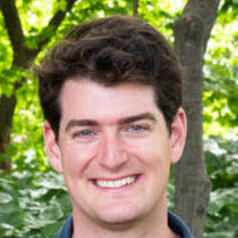
Morgan MacLeod
Postdoctoral Fellow in Theoretical Astrophysics, Harvard University
Morgan MacLeod is a Postdoctoral Fellow in Theoretical Astrophysics and ITC Member whose research focuses on stellar encounters in binary systems and their imprints on the transient night sky.
Morgan uses computational and simulation methods to trace close encounters of stars and compact objects (like black holes and neutron stars) in binary systems and dense clusters. Morgan's research aims at understanding the evolutionary history of objects that end up in binaries that merge under the influence of gravitational wave emission.
Less ![]()

Morgan Tingley
Associate Professor of Ecology and Evolutionary Biology, University of California, Los Angeles
I am an ornithologist, conservation biologist, and community and quantitative ecologist.
My research combines original data collected in the field with biodiversity informatics (“big data”) and novel quantitative modeling techniques to understand critical ecological questions about organisms. I am most interested in how large-scale anthropogenic drivers of change (e.g., climate change, invasive species, land-use change, fire regimes) affect geographic distributions and community interactions over short (years) to long (centuries) timespans. I collaborate with a diverse array of scientists in many fields and am always looking for new opportunities, exciting data, and intriguing systems.
Less ![]()
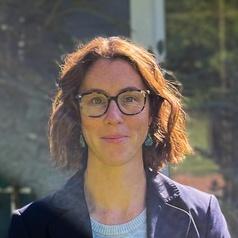
Morgan J. Robinson
Assistant Professor, Mississippi State University
I am a historian of eastern Africa and the history of science, focused on the nineteenth and twentieth centuries. My research interests fall under the rubric of knowledge production broadly speaking, including in the areas of language, standardization, bureaucracy, research, and education. I received my BA from Yale University in 2008 and my PhD from Princeton University in 2018 and am currently an assistant professor in the Department of History at Mississippi State University. Between January 2021 and July 2022 I was a Humboldt Research Fellow affiliated with the Institute for Asian and African Studies at Humboldt University.
My first book, A Language for the World: The Standardization of Swahili (November 2022, Ohio University Press) examines the long-term, interconnected processes that produced Standard Swahili as it is taught around the world today, zooming in on specific moments of conversation, translation, and codification. Adopting this dual perspective allowed me to uncover the ways in which, over the course of a century, various communities-in-construction converged upon the project of linguistic knowledge production in and about Swahili.
This upcoming October I will be in Essen, Germany at the Institute for Advanced Studies in the Humanities working on my second book project, tentatively titled Making an African University: Histories of Inquiry in East Africa. The book will examine the diverse frameworks of scholarly inquiry that co-mingled in this region across two centuries, ranging from discussions on the baraza (front porches) of Zanzibar, to universities in Kampala and Dar es Salaam. My aim with this project is to explore the notion of research, demonstrating how a region like East Africa—largely ignored in the mainstream literature on the history of science and its concomitant field the history of the humanities, both of which focus fundamentally on questions pertaining to the production of knowledge—can and should be an essential part of the conversation. To do so, I examine several case studies of research and researchers who, though perhaps not hewing to our traditional understanding of the terms, were engaged in scholarly inquiry. I argue that such “frameworks of inquiry” did not disappear with the establishment of colonial institutions of higher education, but rather informed the possibilities and modes of research available to East Africans in those spaces.
Less ![]()
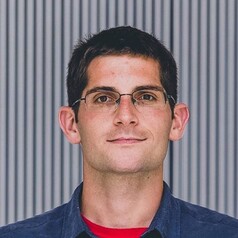
Morgan R. Frank
Assistant Professor of Informatics, University of Pittsburgh
Morgan Frank, Ph.D., is an Assistant Professor in the Department of Informatics and Networked Systems in the School of Computing and Information at the University of Pittsburgh. His research agenda is to embrace the complexity of artificial intelligence (AI), the future of work, and the socio-economic consequences of technological change. This goal is inherently multi-disciplinary and collaborative as it builds broadly on advances in the fields of labor economics, sociology, computational social science, network science, data science, political science, and complex systems.
Less ![]()

Morgiane Noel
PhD Candidate in Law, Trinity College Dublin
I have an LLB, and a two-year master's from the University of Louvain with a specialization in EU Policy and Governance and EU Law with an Erasmus at the University of Geneva. I also have an LLM in International & European Business Law from Trinity College, Dublin, and a Certificate in Humanitarian Law from the College of Europe, Bruges.
In 2022, I started my Ph.D. at Trinity College, Dublin, in the field of Refugee Law and Climate Change.
I have experience in Legal Research and EU policies and I am currently a teaching assistant in EU Law. Before my Ph.D., I have worked in a European export credit insurance in Brussels, Belgium, a Corporate Law firm in Luxembourg, and the field of Immigration Law in Dublin, Ireland. I have a strong interest in international geopolitics, environmental topics such as water conservation, Contemporary Art, Culture, Literature (French, Czech, Middle Eastern,...), Philosophy, and History ( with a preference for the general European History, the Roman and Ottoman Empires, World War II, Decolonisation History, Music History, and Women's rights History ).
I am fluent and work in English, French, and Dutch. Additionally, I have seven years of experience in Latin translations, Ancient Greek, and notions of Arabic, Farsi, and Spanish.
Less ![]()

Moritz Pieper
I have been a Lecturer in International Relations at Salford since February 2016. I completed my doctoral research at the University of Kent’s Brussels School of International Studies on non-Western foreign policies towards the Iranian nuclear programme. During this time, I also was a visiting Research Fellow at China Foreign Affairs University (CFAU), Beijing, at the German Institute for International and Security Affairs, Brussels, and at the School of Oriental and African Studies (SOAS), London.
I am a seminar leader in the modules ‘US Foreign Policy’ and ‘Theories of Power and Domination’ (Level 6) and contribute to teaching in the module ‘International Politics 2’ (Level 4).
My research focuses on Russian foreign policy, Russian-Western relations, and their impact on the international relations of the post-Soviet space and the Middle East. I have researched Chinese, Russian, and Turkish foreign policies towards Iran and the controversial politics surrounding sanctions policies. I also have an interest in EU diplomacy and US Foreign Policy.
Less ![]()


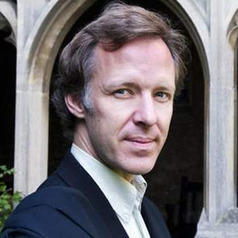
Morten L. Kringelbach
Associate Professor and Senior Research Fellow in Neuroscience, University of Oxford
Morten is also Professor of Neuroscience at the Music in Brain Center at Aarhus University, Denmark. He is interested in understanding pleasure in its many forms, including chocolate and music. Professor Kringelbach uses advanced neuroimaging, neurosurgical and computational methods to understand brain function together with Hedonia team members and international collaborators. He is on the advisory board for Scientific American and a Fellow of the ASP. He has published fourteen books, and over 300 scientific papers, chapters and other articles.
Less ![]()
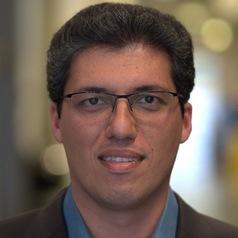
Morteza Sabet
Research Assistant Professor of Automotive Engineering, Clemson University
Morteza Sabet is an accomplished research engineer with a multidisciplinary background in materials, chemistry, and mechanics leading to innovative solutions for the development of advanced materials. Areas of focus: Synthesis, nanomaterials, energy storage and conversion, rechargeable batteries, polymer composites and nanocomposites.
Less ![]()

Morvarid Rahmani
Associate Professor of Operations Management, Georgia Institute of Technology
Less ![]()

Motshedisi Mathibe
Senior Lecturer Gordon Institute of Business Science, University of Pretoria
Dr Motshedisi Mathibe is a full-time faculty lecturer at University of Pretoria’s Gordon Institute of Business Science (GIBS). She shas more than 15 years’ experience lecturing in various higher academic institutions. Dr Mathibe helps pioneering social ventures catalyse change. She travels regularly in Africa. She works best at the interface of culture, technology, formal and informal businesses, and social impact. Dr Mathibe teaches entrepreneurship, entrepreneurial ecosystem, social impact, and strategic marketing. Her research interests are in the field of Social Entrepreneurship, Women Entrepreneurship, Informality, township Economy, and Base of the Pyramid markets.
In addition to teaching and research responsibilities, Dr Mathibe is involved with The United Nation’s Global Impact Young Sustainable Development Goals (SDGs) Innovators Programme. Here, she mentors and supports a team of young innovators in their efforts to frame a challenge, applying sustainable business and innovative concepts/ideas to create tangible business solutions with real market potential. In 2020 she co-published an award-winning case “All Women Recycling: Staffing Challenges during a Global Pandemic”.
Less ![]()
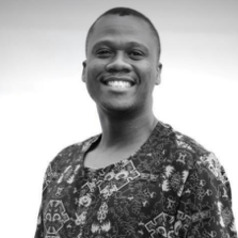
Motshidisi Manyeneng
Lecturer in Costume Theory and theatre costumer, Tshwane University of Technology
Motshidisi currently lectures costume theory and practice at the Tshwane University of Technology. His research work focuses mainly on African traditional performance costume. He presented at the TUT IKS conference and published a paper on Zulu indlamu dance costume with DEFSA in 2019. Motshidisi holds a master’s degree in performing arts technology, specialising in costume and construction from Tshwane University of Technology, and is currently enrolled for his doctoral degree in performing arts at the same institution. With a very widespread industry costuming experience and two Naledi Award best costume designer nominations to his name, Motshidisi is a creative costume designer with extensive experience in designing, developing and managing costumes for world-famous plays and musicals. His work as a costumer includes some of the world’s leading theatre shows such as Disney’s Lion King (South Africa and Taiwan), Beauty and the Beast (South Africa), A New Song, Lion and the Jewel, Kwezi and Tsogo.
Less ![]()

Mouhamed Abdallah Ly
enseignant chercheur, Université Cheikh Anta Diop de Dakar
Mouhamed Abdallah Ly est Docteur ès Lettres et Sciences Humaines, mention Sciences du langage, de l’Université Montpellier III (France). Il est chercheur !l’Institut Fondamental d'Afrique noire Ceikh Anta Diop (IFAN) où il est actuellement le chef du laboratoire de linguistique. Ses travaux varient entre la sociolinguistique,l’analyse du discours et l’anthropologie du langage. Il a notamment publié des travau, d’après ces différentes perspectives, sur les intrications entre langue et religion, la violence verbale, l’étude des référents sociaux dans les débats publis, les mots de la migration. Ses recherches portent portent également sur le langage politique des jeunes.
Il a dispensé des enseignements dans diverses universités du Nord et du Sud (Université Anta Diop de Dakar, Université Assane Seck de Ziguinchor, Université Gaston Berger de Saint-Louis,Université du Québec à Chicoutimi, Université de Calgari-
Less ![]()
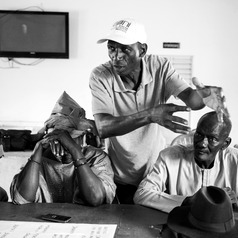
Moussa N'Dienor
Chercheur en agronomie , Institut sénégalais de recherches agricoles (ISRA)
Less ![]()
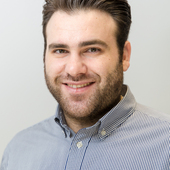
Moustafa Haj Youssef
Senior Lecturer in International Strategic Management, Liverpool John Moores University
Less ![]()


Mpho Mathebula
Lecturer, University of the Witwatersrand
Dr Mpho Mathebula holds a PhD in psychology from the University of the Witwatersrand. She is a lecturer in the psychology department at the same university. Issues pertaining to women’s emancipation, naked body protests, child protection and children’s education, upliftment of society and social issues, are close to her heart, therefore much of her research is focused on these topics.
In her Health Psychology module, Mpho deals with issues such as interpersonal violence, mental health, HIV/AIDS & other communicable diseases as well as family configuration and the role of family on health, among other topics. The Gender module she teaches looks into African feminist critiques of the epistemological foundations of patriarchy and contribution to the emancipation of women as subjects; decoloniality and intersectionality among other topics.
As an adaptable person and a quick learner, Mpho loves to explore different research topics and broaden her knowledge and understanding of the subject matter.
Her research expertise, resourcefulness, easy-going nature, initiative, independent and sharp mind, and an eye for detail make Mpho an asset in any team.
Contact Information
Email: [email protected]
[email protected]
Less ![]()
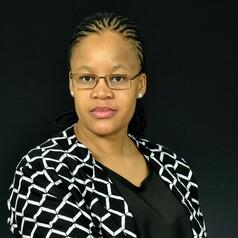
Mpho-Entle Puleng Modise
Lecturer, University of South Africa
Mpho-Entle Puleng Modise (PhD) is a lecturer in the Department of Curriculum and Instructional Studies, College of Education at the University of South Africa. Mpho-Entle’s research areas include faculty and student support in distance education, e-learning, open distance e-learning (ODeL), academic professional development, educational technology integration and adoption, and the use of e-portfolios in teaching and learning. She also has an interest in MOOCs and OERs.
Mpho-Entle is also a member of the South Africa Education Research Association (SAERA) executive committee, where she represents the needs and interests of Early Career Researchers (ECRs) in South Africa and other African countries. She has received the SAERA 2022 Doctoral Dissertation Award and the 2022 Postgraduate Medal (Doctoral Degree) from the Education Association of South Africa (EASA).
Less ![]()
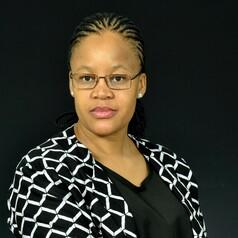
- Market Data




















